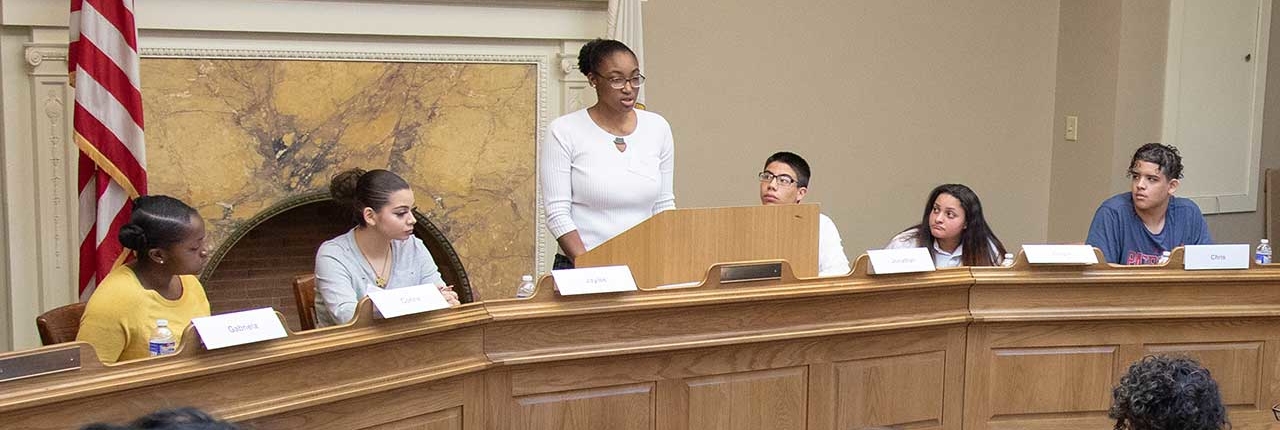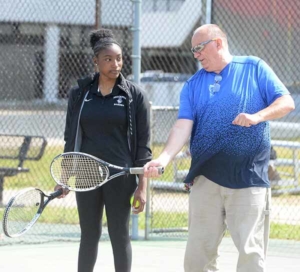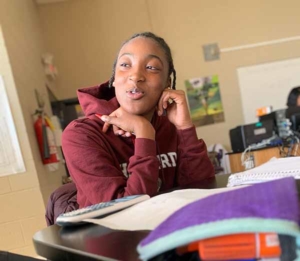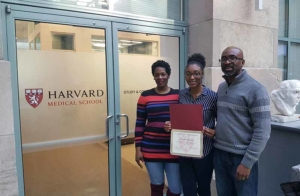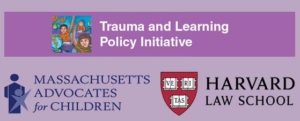Chinyere
Hi, my name is Chinyere and I’m a junior. My end goal is to go to medical school and become a pediatrician. I do well in school, and teachers’ positive attitudes toward me help my motivation to learn. However, I have noticed a problem: Depending on academic level, teachers do not encourage every student equally, and this negatively affects their learning potential. This issue is affecting my friends and family, and I feel like a helpless bystander.
In elementary and middle school, I was in TAG: the talented and gifted program. They uplifted me and made me feel like I was smarter than the rest. Our teachers would tell us: “You guys are in TAG. You’re held at a higher standard.” At my high school, classes are at one of three academic levels: the highest is honors, then college prep advanced, or CPA, and finally college prep, or CP. The support I received in middle school has led me to the honors level now. And it wasn’t just me – most of my peers who were in TAG are in honors or Advanced Placement, too.
However, my sister’s experience looks different. Her math teacher told her that CPA was the highest level of math she could take in high school. When she shared this with me, I said that she could actually take honors math in 9th grade. It seemed like her teacher was implying that she couldn’t thrive in honors, but I know that she is hardworking and adaptable, which are qualities that allow you to do well in honors classes. His decision to formally recommend that she should be put in CPA math because he didn’t expect much from her makes her feel like she’s not as good as the people who were recommended for honors. To me, this attitude is serving to cap my sister’s learning, because someone she trusts to know what is best for her academically is holding her back instead. If he tells her she can’t get to a higher level, she is going to believe him. Students have potential to adapt, and it bothers me to see teachers underestimate this.
In turn, students in different academic levels at my high school aren’t treated equally either. My teachers in the honors level uplift us at the expense of CPA or CP students. A student in my English class once asked my teacher if we could use notecards with information for an upcoming test. He responded, “This is an honors class; I only do that for CPA students. I expect more from you.” That’s one of the common phrases you’ll hear if you’re in honors or AP courses: “This isn’t CPA” or “this isn’t CP.” At the time, these comments inspired me to study harder. They made me feel like I was a step higher and could achieve more. But now, looking back, I can see that they’re also disrespectful to other students. They affect the way that honors students see themselves in comparison to CPA or CP students overall – I personally have witnessed honors students mock a freshman who was in a CP earth science class.
Ultimately, these remarks from teachers contribute to a general feeling of having two separate schools within the same building. Half of the school is thriving, and the other half is just swept under the rug. If I were in the CPA or CP levels, I would feel disregarded. Our school held an AP rally, basically, a pep rally, in our theater for students in AP classes. We were allowed to leave class to go, and the band played and we watched a presentation on ways to do better on AP tests. It made me feel special for taking AP classes, but meanwhile, the students in CPA or CP were still in class. Don’t you think we should have rallies for people to join AP? A rally celebrating us might benefit our learning, but it does nothing for the students who actually need the uplifting more than we do.
This realization has put my classes and everything I do into perspective. The unequal treatment I see every day between different groups of students doesn’t make for a safe and supportive learning environment. It’s true that we don’t all learn in the same way, and placing students in different academic levels can help us get the right kind of support. But the situation we have right now doesn’t just do that; it also fosters an attitude that it is entirely your own fault if you’re in a lower level, or if you’re not learning as much. That’s not true. Those things are actually related to the culture of the school – when adults claim that students can’t achieve, this discourages them from even trying. Prioritizing safe and supportive schools and our voices would allow you to see that the current system isn’t working. From our perspective, the academic levels create more division than unity, which impedes everyone’s learning. It’s important to me that going forward, all of us are provided with the support we deserve to truly be the best we can be. Thank you.

